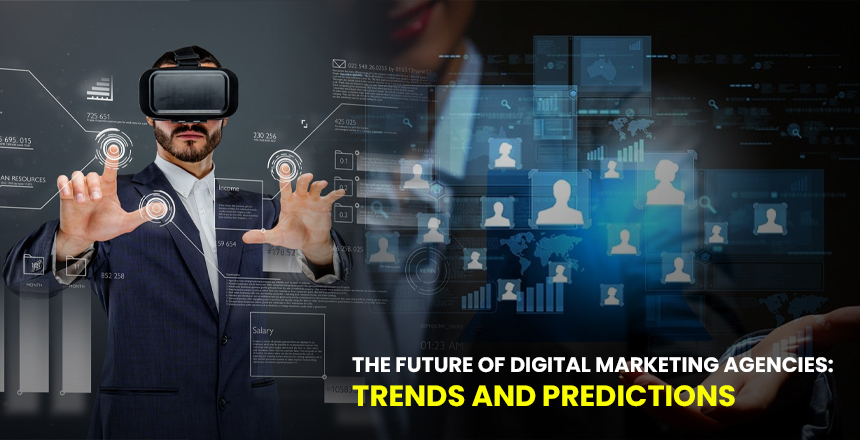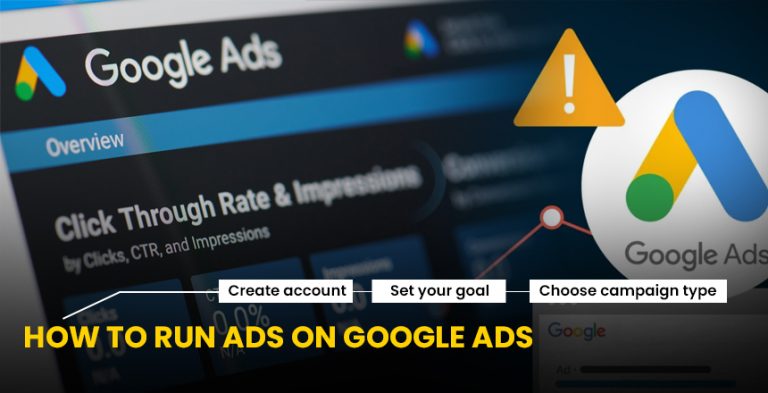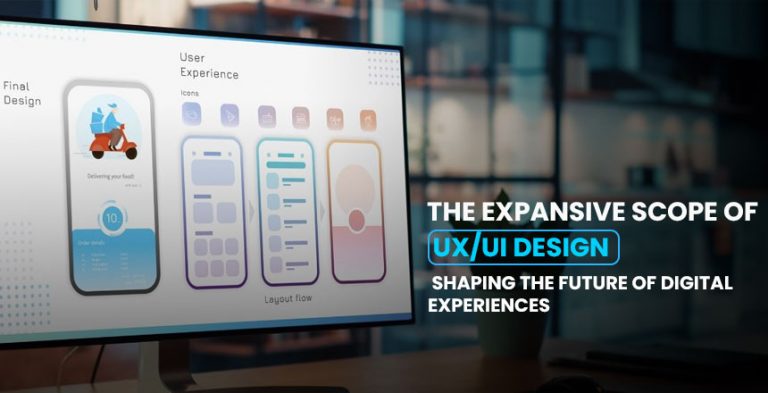Digital marketing, as the name suggests, can be defined as consumer-oriented advertising through computers, televisions, or handheld devices. Digital marketing is, in fact, a process of carrying advertising in an innovative way-to talk with consumers on whether they are at home before a video game, or on a mobile device, during a commute to work, something they may be doing in their mind instead of watching television at the same time they would be watching television. Digital marketing encompasses all the high-tech advertising strategies needed for a company to capture the consumer at a precise point in time.
However, going forward in this digital era, companies cannot rely on traditional marketing anymore. They will have to rely more on digital marketing agencies, which will need fantastic ground research because the market keeps growing with new technologies and reshaping consumer behaviors. This article looks ahead and provides insights on future key trends and predictions that will redefine the face of digital marketing agencies.
1. Voice and Visual Search Optimization- Brand that adapts their presence digitally to these searching methods will reap the benefits of competition.
In the realm of search optimization, as virtual assistants and smart speakers become so ubiquitous, voice search and its optimization become a prioritized area. Agencies will have to evolve their strategies to capitalise on voice queries. Visual search technology is also rapidly advancing-the ability for consumers to search not through words, but images, opens vast new marketing possibilities for brands. In fact, those that adapt their online presence to these methods of search will have a tremendous advantage over competition.
2. AI and Automation:
One of the future trends expected to envelop digital marketing agencies is the use of AI. AI is transforming the use of digital marketing today and will continue to revolutionize the field with time. They will use AI for purposes like data analysis, chatbots, content generation, and customized marketing. Through hyper-personalized experiences, machine learning algorithms will help brands develop a stronger emotional connection with their audiences. The automation tools are reshaping the workflow for marketers so that they can invest their time in the company’s strategic planning instead of tedious, scary workloads standard for every marketer.
3. Emerging Metaverse and Virtual Experience:
Given all the rapid advancements in the metaverse, digital marketing agencies will be tasked with scouting the new opportunities housed within the virtual environments. Brands will use augmented reality (AR) and virtual reality (VR) to create immersive experiences for customers. Marketing strategies will increasingly rely on virtual showrooms, digital product trials, and more interactive experience of brands.
4. Data Privacy and Ethical Marketing
This was also due to anxiously growing activities in one-to-one communication. However, it should be noted that the latest regulations, such as GDPR or CCPA, have also brought changes in the ways agencies will collect and use data from consumers. More than ever, marketers will have to keep in mind that transparency and ethical performance in the use of data are going to build trust within audiences. First-party data collection and zero-party data will soon be the replacement for traditional mechanisms of third-party tracking.
5. Evolving Content Marketing-Short and Microcontent
The buzz word is engaging, and consumers are looking for content that is bite-size yet effective in communicating the message. Shorter-than-usual videos, interactive posts, and games will now be the hearts of the new digital marketing. In fact, TikTok, Instagram Reels, YouTube Shorts, and others will push forward, leaving agencies to sort out how they need to revise their strategies for content use. Interactive quizzes, polls, and shoppable posts will also bring the audience to new levels of engagement.
6. Influencer Marketing 2.0
The world of celebrity influence will transition to more personalized forms of influence marketing. Micro and nano-influencers will predominate in a very connectable way as the brandz will have to play towards a more authentic relationship at connecting niche audiences. For agencies, the business modeling will include long-term arrangements and not just one-off promotions.
7. Hyper-Personalization Created by Big Data
Personalization will surpass simply using the customer’s first name. AI and data mining analytics will empower agencies to provide individualized recommendations, personalized email campaigns, and tailored ad experiences. Consumers will tend to expect that there are brands that would “guess” their needs and provide them “right content at the right time.”
8. Omnichannel Marketing and Seamless Integration
It is going to carry the future of digital marketing in an omnichannel mode. Touch-points are websites, social media, mobile apps, and physical stores that customers engage with a brand. Agencies need to integrate these channels into an overall brand involving these around the customer journey to ensure each brand experience is consistent and seamless.
9. Sustainability and Social Responsibility
Modern consumers are more sensitive toward the environment and social issues. Brands that will follow sustainability and corporate social responsibilities will earn the trust and loyalty of customers. Digital marketing agencies play an eminent role in crafting purpose-driven campaigns to drive home a brand’s ethical values.
10. Blockchain and Decentralized Marketing
The change that blockchain will bring to digital marketing is enhanced transparency in advertising and fraud lessening. Smart contracts will ensure all transactions made during influencer partnerships or ad placements are secure and verified. De-centralized platforms will bring new challenges in traditional advertising models by providing other avenues for brands to reach consumers directly.
Conclusion
Tomorrow’s digital marketing agency will be evolving on aspects of innovation, flexibility, and ethics. It will witness AI, voice search, metaverse, and hyper-personalization making drastic changes in brand-audience engagements. The agencies that adopt these changes and priorities in achieving cutting-edge, consumer-centric approaches will be the survivors in changing times. And as technology grow, the key to success for tomorrow’s digital marketing practitioners will be to stay ahead of trends and prepare for impending transformations.








